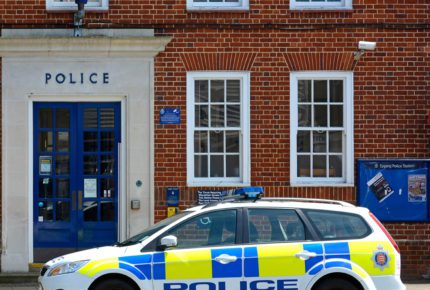

If you have been arrested but not yet charged, you may be wondering how much longer this agonising wait will last. With your job and personal life in jeopardy, it is understandable that you want answers as soon as possible. Unfortunately, the answer to the question of when you will receive your charging decision varies hugely depending on the nature of your case, the competence of the police officers involved, and the other demands on police time that might delay the investigation of your case. Where the case must be submitted to the Crown Prosecution Service (CPS) for a charging decision, this can also extend the period of time before a charging decision is made. In some cases, you will learn of the decision to take no further action a few hours after your arrest. In others, the process could take weeks or even months.
How long does a police investigation take?
Asking how long a police investigation takes is similar to the old adage, “how long is a piece of string?” There is infinite variation in the duration of a police investigation. The length of the police investigation process varies depending on factors including:
- The complexity of the evidence – Financial crimes that involve analysing a lot of paperwork will generally take law enforcement longer to conclude whether there is sufficient evidence to charge. Similarly, where there is a large volume of CCTV evidence to be obtained and viewed, this could also delay a charging decision.
- If the charging decision must be made by the CPS – The police are allowed to make the charging decision on less serious matters such as summary only offences, certain either way offences where a guilty plea is anticipated, and shoplifting offences. All other offences must be referred to the CPS for a charging decision. The CPS can take many months to reach their decision. For example, a rape case takes the CPS an average of 9 days to make a charging decision.
- The type of offence – The charging decision on summary offences is likely to be taken more quickly not only because the police can make the decision as to whether to prosecute themselves, but also because the prosecution must be instituted within six months of the date of the offence (Section 127 of the Magistrates Court Act 1980). By contrast, there is no time limit for commencing the criminal proceedings for either way and indictable only offences, therefore the charging decision on these types of offences may take longer.
- The capacity of the investigating officer – Unavoidably, where the investigating officer has a heavy caseload, the police investigation will take longer.
- The cooperation of the suspect – The investigation may take longer where the suspect exercises their right to remain silent, or provides very little information in response to the police’s questions. Depending on the circumstances of your case and the strength of the police’s evidence against you, your criminal defence solicitor can advise you of whether it is in your interests to cooperate fully, answer the bare minimum of questions, submit a written statement, or remain silent.
How long can you be released under investigation for?
In 2017, the Policing and Crime Act 2017 changed the law to restrict the length of time that a suspect can be released on bail to 28 days (or three months for cases under investigation by the director of the Serious Fraud Office). In response to this change, the police altered their practice from releasing suspects on bail to releasing them ‘under investigation’. Unlike bail, being released ‘under investigation’ does not come with restrictive conditions – for example, the police are unable to prevent you from contacting certain individuals, or requiring you to stay at one address. That is the good news for suspects. The bad news is that there is no time limit to be being released ‘under investigation’.
Unfortunately, the police have exploited this loophole so that now suspects are frequently released under investigation with no charging decision being made for many months at a time. Whereas bail requires the police to review the case at regular intervals when the suspect returns to report for their bail date, a suspect released ‘under investigation’ does not have the same regular check-ins which prompt the investigating officer to progress the case. The Justice Inspectorates, a watchdog that looks into police conduct, has found that this change in law has led police to overlook or neglect cases where the suspect is released under investigation in comparison to cases where the suspect has been released on bail.
How can your solicitor help whilst you are waiting for your charging decision?
A criminal defence solicitor can help get your case dropped before court by supplying evidence to the police that will help exonerate you, or at least cast doubt on the police’s case in order to show that there is no realistic prospect of conviction.
For example, say you are accused of sexual assault after you had a one night stand with a friend. Subsequent to the night in question, you stayed in touch and spoke regularly. However, when you began dating your current girlfriend, your friend became angry with you, and it was at this stage that she made the allegation of sexual assault. You believe that the incident was consensual but you are not sure of how to prove this to the police. Your solicitor can help you supply the police with evidence such as call records and copies of messages exchanged between you and the alleged victim, which show the nature of your relationship, and how you remained on good terms after the night where the sexual activity took place.
Alternatively, where the evidence against you is very weak, your solicitor may advise you to provide little or no evidence to the police, and simply wait for the charging decision. Say for example, you have been accused of fraud due to a tip off by a colleague, but there is little or no evidence to back up the allegation. In this scenario, instead of trying to demonstrate your innocence, it may be better to bide your time and await the police’s conclusion.
What happens when the police take no further action?
When you are informed that the police are taking ‘no further action’ (NFA), this means that no charge will be brought and the police are no longer actively investigating the case. You will not have to attend court to answer the charges against you. If you have been remanded in custody pending the investigation, you will be released. If you have been released on bail, you will no longer be on bail or subject to bail conditions. A decision to take no further action does not prevent the police from reopening the investigation at a later stage if new evidence comes to light.
Does a decision to take ‘no further action’ show on a DBS check?
If you have been arrested for an offence but the decision was made to take no further action before it reached court, this will not show up on a basic or standard disclosure and barring service (DBS) check. However it may show up on an enhanced check the offence is relevant to the role that you are applying for.
A basic DBS check can be requested by any person who wants to check what information is held about themselves. A basic check will only show convictions and cautions that are not spent.
A standard DBS check is the one that is conducted at the request of most employers. You cannot apply for a standard DBS check yourself; your employer must apply for it on your behalf. A standard DBS check will show details of spent and unspent convictions and cautions.
If you are seeking work in a sector that involves work with children or vulnerable individuals, you will undergo an enhanced DBS check. This includes teachers, support workers, and healthcare workers. These type of checks show cautions, warnings, reprimands, spent and unspent convictions from the police national computer. In addition, the local police can add any further information that they consider relevant. For example, say a primary school teacher undergoes an enhanced DBS check. If they had been previously arrested and investigated for child grooming but no further action was taken in the case due to lack of evidence, the local police would probably consider that this information is relevant to the prospective employers therefore they would include it in the certificate. By contrast, if the NFA was in relation to driving without insurance, it is unlikely that it would be included on the certificate because the offence is not relevant to the role of a teacher.
Where to get further help
If you were unhappy with the police station representative who attended your police interview, you can change to the solicitors’ firm of your choice. Instructing a criminal defence solicitor in whom you trust can make all the difference to your case. At Stuart Miller Solicitors our ethos is to go the extra mile for our clients. We will ensure that you receive the high quality defence that you deserve. Contact us for a no obligation consultation today.
OUR COMMITMENTS TO YOU:
-
Responsive
A legal expert will consult you within 24 hours of making an enquiry.
-
Empathetic
We will always treat you with trust, understanding and respect.
-
Specialised
Your case will be handled by an expert who specialises in your type of offence.
-
Proactive
We will take early action to end proceedings as soon as it is practically and legally possible to do so.
-
Engaged
You will be kept updated on your case at all times. We will provide a named contact available to answer your questions.
-
Caring
We understand this is a difficult and stressful time for you and your family. Our team will support you every step of the way.
-
Tenacious
We will never give up on your case. We fight tirelessly to get you the best possible outcome.
